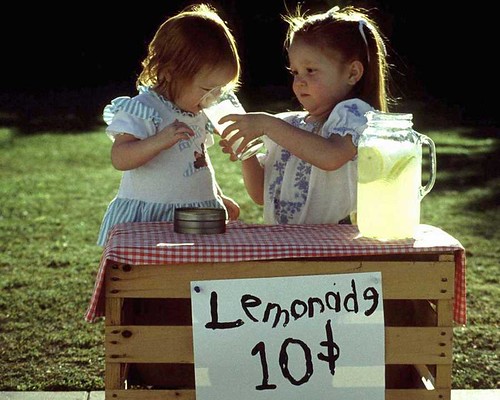During the debate last night, Barack Obama claimed the following about small business in America,
The last point I’ll make about small businesses. Not only do 98 percent of small businesses make less than $250,000, but I also want to give them additional tax breaks, because they are the drivers of the economy. They produce the most jobs.
Does that strike you as an absurd claim on several levels? First, 98%, virtually every single one, of small businesses make less than $250K annually? Simply absurd, unless your idea of “small business” is pictured above. The second absurdidty is the claim that these small businesses who make less than $250K create the “most jobs”?
Obama must have a very different idea of what constitutes a small business than the federal government does. Over at Patterico, they took a look at the government definition of what a small business is. Here is what they found,
Here are examples from the SBA’s Table of Small Business Size Standards setting forth the maximum average annual receipts by industry that a business can have and still be classified as a small business:
Crop production of all types — $750,000
Animal production except for cattle & chicken/eggs — $750,000
Cattle feedlots — $2.5M
Chicken/egg production — $12.5M
Forestry & logging — $7M
Fishing — $4M
Irrigation, sewage, water supplies — $7M
Housing construction — $33.5M
Heavy and civil engineering construction — $33.5M
Dredging and cleanup — $20M
Concrete, framing, and other housing contractors — $14M
Car dealers — $23-29M
RV, motorcycle, & boat dealers — $7M
Furniture, hardware, clothing & sporting good stores — $7M
Electronic stores — $9M
Supermarkets, gas stations & department stores — $27M
Pharmacies — $7MIn addition, most of the industries in the Table — such as manufacturers of food, beverages, apparel, print, oil/gas, plastics, plumbing, machinery, computers, electronics, electrical, transportation, and furniture — are considered small businesses based on their total number of employees instead of average annual receipts. In those industries, the cut-off between small and large businesses ranges from 500-1,000 employees per business/industry.
It’s difficult for me to imagine a business that has 50 or more employees (let alone 500-1,000) that has receipts of less than $250,000 per year. And, given the SBA definitions of “small business,†it seems likely that many small businesses in a wide range of industries have receipts of more than $250,000 per year.
If so, it is appalling that Obama would imply that, if he is President, a small percentage of businesses exceed the $250,000 per year cut-off for increased taxation under his tax plan.
Yes, appalling is a good word for it. Another appropriate word would be to call it what it is, a lie. Perscription for economic disaster also works just as well. The fact is that Obama’s tax plan spells disaster for small business owners, and those who work for them. In this brutual economic climate, their taxes, and therefore their cost of doing business, is going up.
Barack Obama’s plan for small business is to keep them that way. Obama is as dishonest as he is smooth. Kind of reminds me of someone else.
